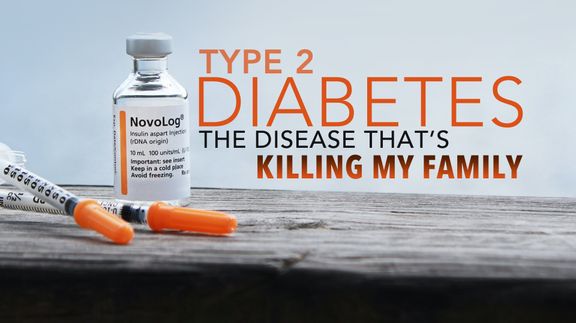

Diabetes: The Disease That's Killing My Family
Type 2 diabetes is one of the most serious public health issues of our lifetime. As a hereditary disease, genes can be passed to children that increase the chances of them developing the illness. However, environmental factors like diet and exercise also play an important role in whether someone will get diabetes. Left untreated, diabetes can be debilitating, demanding lifelong dialysis, amputations, and even causing loss of sight. So, what is it like to live with this disease, and what steps can we take to better protect and prevent our children and grandchildren from suffering?
Type 2 diabetes is one of the most serious public health issues of our lifetime. As a hereditary disease, genes can be passed to children that increase the chances of them developing the illness. However, environmental factors like diet and exercise also play an important role in whether someone will get diabetes. Left untreated, diabetes can be debilitating, demanding lifelong dialysis, amputations, and even causing loss of sight. So, what is it like to live with this disease, and what steps can we take to better protect and prevent our children and grandchildren from suffering?
Related Articles
View All‘Do Something’: Cutting Your Risk of Cancer One Step at a Time
Many cancers have been shown to be related to lifestyle. To combat the risk, and to improve health, try changing a few habits. It may seem like a lot, but compared to the risk of…
The Skinny on Fat Cells: They're Just Another Body Tissue
Body fat is often scrutinized when evaluating health and diet, but what exactly is it? Fat cells provide nutrients, and regulate temperatures and hormonal changes in the body.
7 Ways BMI is Useless, 6 Better Alternatives, & 5 Reasons to Stick With BMI Anyway
The BMI, or “body mass index,” is a common method to assess body composition. But how accurate is it really, and can it be used to predict health outcomes based on its…
A Brief History of Organ Transplants
Organ transplants have become virtually commonplace in the 21st century, with tens of thousands of operations each year. But it literally took millennia of trial-and-error…